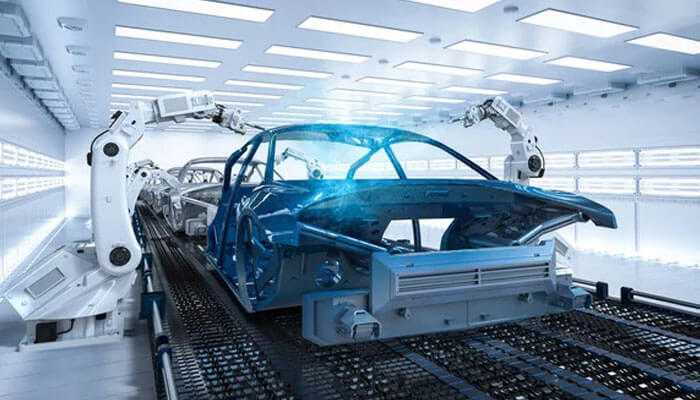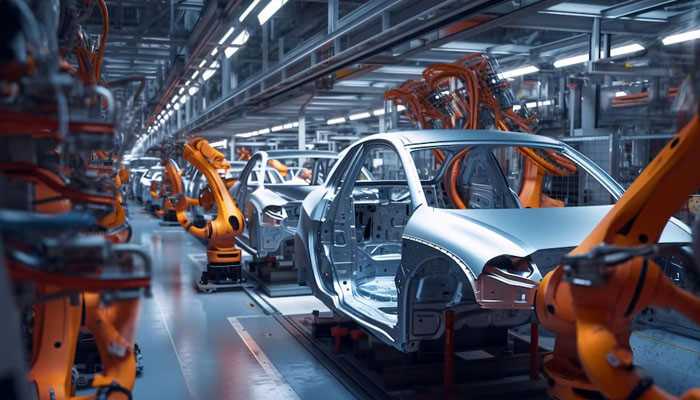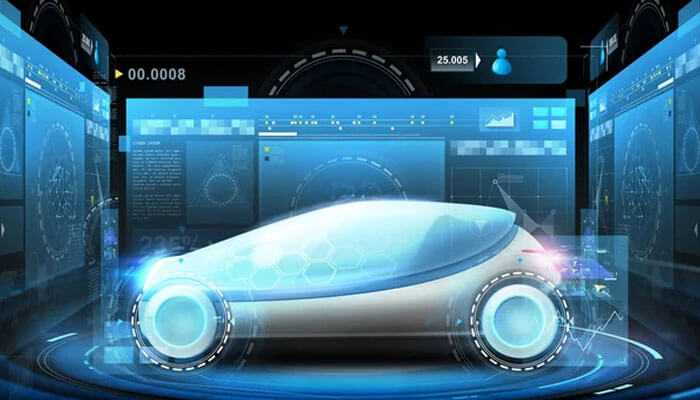The automotive industry stands on the cusp of a transformation. and new auto manufacturing processes are not just shaping the future; they’re reshaping the very foundation of how cars are made. This revolution is driven by the pursuit of efficiency, sustainability, and the ultimate in customization. Let’s delve into the technologies at the forefront of this exciting era.
The Advent of 3D Printing in Auto Manufacturing
3D printing, also known as additive manufacturing, is changing the game. It allows for the creation of complex parts with less waste than traditional manufacturing methods. But what does this mean for the auto industry? Speed and customization. Prototypes can be developed faster than ever, and small batches of specialized parts can be produced on demand, reducing costs and time to market.
The environmental benefits of 3D printing are also significant, with the technology enabling the automotive industry to move towards a more sustainable production model by minimizing material waste.
Furthermore, the ability to produce parts on demand reduces the need for large inventories, further lowering the carbon footprint. This technology is not just transforming the way cars are built; it’s also changing the way we think about design and manufacturing, allowing for a level of creativity and innovation previously unattainable.
Companies like BMW and Ford are leading the way, integrating 3D printed parts into their vehicles, showcasing the practical applications of this technology. Ford, for example, has utilized 3D printing for components in its Ford Mustang Shelby GT500, reducing production times and costs significantly.
The customization possibilities offered by 3D printing are also enhancing the customer experience, allowing for a more personalized vehicle that reflects the unique preferences of each buyer. This shift towards customization is expected to increase customer satisfaction and loyalty, as consumers increasingly value products tailored to their specific needs and desires.
Automation and Artificial Intelligence (AI)
The assembly line, once revolutionized by Henry Ford, is undergoing another transformation, this time powered by robotics and artificial intelligence. Robots are not new to auto manufacturing, but their roles are expanding beyond simple tasks.
They’re now integral to quality control, able to spot defects with greater accuracy than the human eye and predictive maintenance, where AI anticipates equipment failures before they happen. The personalization of vehicles is another area where AI shines.
Algorithms can tailor cars to individual preferences, from color to engine specifications, making each vehicle uniquely suited to its owner. The integration of AI into the manufacturing process is also improving worker safety by taking over dangerous tasks, thereby reducing the risk of accidents.
This technology enhances the production line’s flexibility, allowing for a quicker response to market changes and consumer demands. As AI continues to evolve, its role in auto manufacturing is expected to grow, leading to even more significant efficiencies and innovations.
Sustainable Materials and Eco-friendly Manufacturing
Sustainability is no longer a buzzword but a directive. The industry is moving towards recycled materials and bioplastics for car production, significantly reducing the environmental footprint of new vehicles.
These materials not only lessen the dependency on non-renewable resources but also pave the way for entirely new vehicle designs. Reducing waste and energy consumption in manufacturing processes also plays a critical role in this shift. Companies are adopting lean manufacturing techniques that not only benefit the environment but also improve efficiency and reduce costs.
The move towards electric vehicles (EVs) is another testament to the industry’s commitment to sustainability, with manufacturers investing heavily in EV technology and infrastructure. This shift is not only about reducing emissions but also about preparing for a future where traditional fuel sources may become less viable.
Furthermore, the use of sustainable materials is becoming a significant selling point, appealing to a growing segment of environmentally conscious consumers.
Advanced Dust Collection Systems in Auto Manufacturing
The importance of a dust collection system in this new age of auto manufacturing cannot be overstated. Dust and particulates pose significant health risks to workers and can compromise the quality of the final product. Advanced dust collection systems, designed to handle the specific needs of auto manufacturing, ensure a clean and safe environment.
These systems not only capture dust at the source but also contribute to the overall sustainability efforts by reducing airborne particulates and improving air quality. Innovations in this area are continually evolving, with systems becoming more efficient and adaptable to different manufacturing settings.
The implementation of advanced dust collection systems also aligns with global standards and regulations aimed at protecting worker health and the environment. By investing in these technologies, manufacturers are demonstrating a commitment to corporate responsibility and ethical practices. Additionally, these systems often result in operational efficiencies, as cleaner workspaces lead to fewer machine malfunctions and maintenance issues.
The Future of Auto Manufacturing Technologies
Looking ahead, the possibilities are endless. Virtual reality (VR) and augmented reality (AR) are set to revolutionize the design and manufacturing process, offering a level of precision and immersion previously unimaginable.
The impact of new materials, such as nanotechnology, promises lighter, stronger, and more efficient vehicles. The future of auto manufacturing is not just about making cars faster or cheaper but about reimagining what a car can be. It’s a future where innovation drives sustainability, where customization is the norm, and where technology and tradition merge to create the vehicles of tomorrow.
The exploration of autonomous vehicles and their integration into the manufacturing process is also on the horizon, potentially transforming how we view transportation and mobility. Collaboration between tech companies and automotive manufacturers is likely to increase, bringing fresh insights and accelerating the pace of innovation. As consumer expectations continue to evolve, the industry’s ability to adapt and innovate will be crucial to its success.
Conclusion
The revolution in auto manufacturing is well underway, driven by advancements in technology and a shift towards more sustainable processes. The industry is embracing these changes, recognizing the potential to not only improve the production process but also to create a new era of vehicles.
This transformation is not just about the cars we drive but about the world we want to live in. As we look to the future, one thing is clear: innovation will continue to be the driving force behind the automotive industry. Stay tuned to the latest developments in auto manufacturing technologies and join us in the conversation about the future of the automotive industry.
Your thoughts and feedback are not just welcome; they’re essential to shaping this exciting journey. The path forward is one of collaboration and innovation, where each new technology brings us closer to a more sustainable, efficient, and exciting automotive future.




